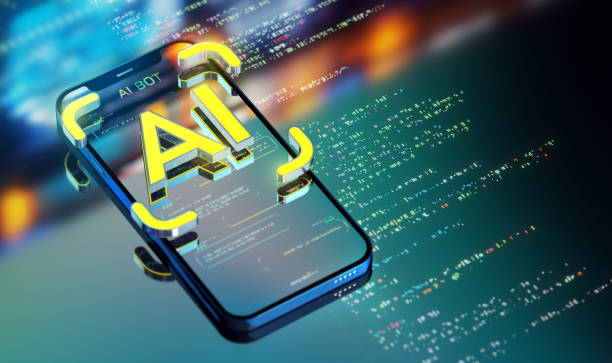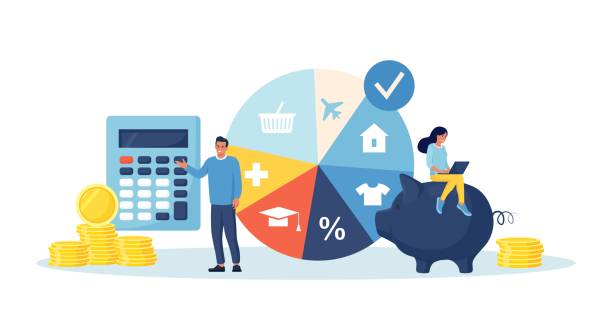In the fast-changing tech landscape, artificial intelligence (AI) is a transformative force. It reshapes many aspects of our lives, especially how we work. AI – Artificial Intelligence software can analyze vast data, learn from patterns, and make smart decisions. It is revolutionizing industries and redefining traditional job roles. From boosting productivity to fostering innovation, AI leads a paradigm shift that shapes the future of work in new ways.
AI in the Workplace: An Overview – AI – Artificial Intelligence Software
Artificial intelligence encompasses a broad range of technologies, including machine learning, natural language processing, computer vision, and robotics. These technologies are being integrated into various workplace applications, creating smarter and more efficient processes. AI-driven software can automate repetitive tasks, provide insights from data analysis, and even assist in complex decision-making processes. This integration is not only boosting productivity but also enabling employees to focus on more strategic and creative aspects of their roles.
Enhancing Productivity and Efficiency
One of the most significant impacts of AI in the workplace is its ability to enhance productivity and efficiency. AI-powered automation tools can handle routine tasks such as data entry, scheduling, and customer support, freeing up employees to concentrate on higher-value activities. For instance, chatbots powered by natural language processing can provide instant responses to customer inquiries, reducing response times and improving customer satisfaction.
In manufacturing, AI-driven robots perform repetitive and demanding tasks with precision and speed. This increases production rates and reduces errors. Additionally, AI-powered predictive maintenance systems monitor equipment health and predict failures. This minimizes downtime and optimizes maintenance schedules. These advancements not only improve operational efficiency but also lead to significant cost savings for businesses.
Data-Driven Decision Making – AI – Artificial Intelligence Software
In today’s data-centric world, the ability to derive actionable insights from vast amounts of data is crucial for business success. AI software excels in analyzing large datasets, identifying patterns, and generating predictive models. This capability empowers organizations to make informed decisions based on real-time data, rather than relying solely on intuition or historical trends.
For example, in the finance industry, AI algorithms can analyze market trends and perform risk assessments, enabling traders and investment managers to make more accurate predictions and informed investment decisions. Similarly, in healthcare, AI-powered diagnostic tools can analyze medical images and patient data to assist doctors in diagnosing diseases and recommending personalized treatment plans. By leveraging AI’s analytical capabilities, businesses can gain a competitive edge and drive innovation.

Transforming Customer Experiences
AI is also transforming the way businesses interact with their customers. Personalized experiences are becoming the norm, thanks to AI-driven recommendation systems and targeted marketing strategies. E-commerce platforms like Amazon and Netflix use AI algorithms to analyze user preferences and behavior, providing tailored product recommendations and content suggestions. This personalization not only enhances customer satisfaction but also drives sales and customer loyalty.
Moreover, AI-powered customer service solutions, such as virtual assistants and chatbots, are revolutionizing customer support. These systems can handle a wide range of inquiries, from answering frequently asked questions to processing orders and resolving issues. By providing quick and accurate responses, AI-driven customer service tools improve the overall customer experience and reduce the workload on human support agents.
Redefining Job Roles and Skills – AI – Artificial Intelligence Software
As AI continues to evolve, it is reshaping traditional job roles and creating new opportunities. While some tasks are being automated, new roles are emerging that require a blend of technical expertise and creativity. Jobs related to AI development, data science, and machine learning are in high demand, as organizations seek skilled professionals to design, implement, and maintain AI systems.
Additionally, the integration of AI in the workplace is driving the need for upskilling and reskilling. Employees must adapt to new technologies and acquire skills that complement AI capabilities. For instance, data analysis, critical thinking, and problem-solving skills are becoming increasingly valuable as AI takes over routine tasks. Organizations are investing in training programs to equip their workforce with the necessary skills to thrive in an AI-driven environment.
Ethical Considerations and Challenges
While the benefits of AI in the workplace are undeniable, it also raises ethical considerations and challenges. The widespread adoption of AI has sparked debates about job displacement, privacy concerns, and algorithmic bias. It is essential for businesses and policymakers to address these issues to ensure the responsible and equitable use of AI technologies.
Job displacement is a significant concern, as automation may lead to the reduction of certain job roles. However, history has shown that technological advancements also create new job opportunities and industries. The key is to manage this transition by providing support for displaced workers and fostering a culture of continuous learning.
Privacy concerns arise from the vast amounts of data AI systems collect and analyze. Organizations must implement robust data protection measures and ensure transparency in how data is used. Additionally, addressing algorithmic bias is crucial to prevent discriminatory outcomes. AI systems should be designed and trained with diverse and representative datasets to minimize bias and ensure fair and ethical decision-making.

The Future of Work: Collaboration Between Humans and AI – AI – Artificial Intelligence Software
The future of work is not about AI replacing humans, but rather about collaboration between humans and AI. AI can augment human capabilities, enabling us to achieve more and solve complex problems more efficiently. By leveraging AI as a tool, employees can focus on tasks that require creativity, empathy, and critical thinking – areas where human intelligence excels.
For instance, in creative fields such as marketing and design, AI can assist in generating ideas and automating repetitive aspects of the creative process, allowing professionals to concentrate on conceptualization and innovation. In healthcare, AI can provide doctors with data-driven insights and support, enhancing their ability to deliver personalized and effective treatments.
Moreover, AI can facilitate collaboration and communication within organizations. AI-powered project management tools can streamline workflows, track progress, and provide real-time updates, improving team collaboration and productivity. Virtual collaboration platforms enhanced with AI capabilities can enable seamless communication and knowledge sharing, regardless of geographical location.
Conclusion: AI – Artificial Intelligence Software
Artificial intelligence is undeniably shaping the future of work, driving unprecedented changes across industries. From enhancing productivity and efficiency to transforming customer experiences and redefining job roles, AI is revolutionizing the way we work. However, as we embrace the potential of AI, it is crucial to address ethical considerations and ensure that AI technologies are used responsibly and equitably.
The future of work lies in the collaboration between humans and AI, where AI serves as a powerful tool to augment human capabilities. By embracing this collaboration and fostering a culture of continuous learning, organizations can unlock new opportunities, drive innovation, and navigate the evolving landscape of work in the age of AI. The journey ahead is exciting, and the possibilities are limitless as we harness the power of AI to shape a brighter and more productive future.









[…] the right mining software can significantly impact your rig’s performance. Additionally, different software options offer […]
[…] the rise of advanced technologies like artificial intelligence and big data, ethical challenges in market research have become more complex. So, here are some […]